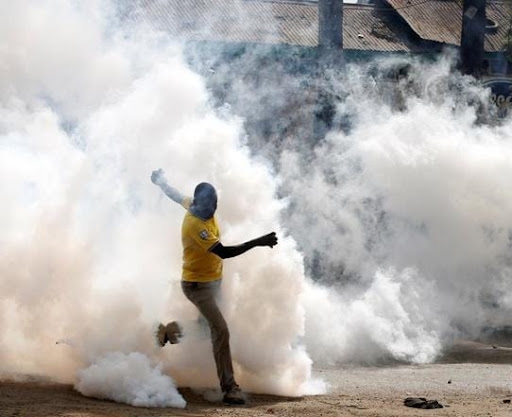
On the night of June 7, a trained teacher and blogger, Albert Ojwang, died brutally while in police custody in Nairobi, only hours after arrest at his rural home, about 350km from the capital.
Ojwang’s arrest was linked to posts on X in which he accused Deputy Inspector General Eliud Lagat of running a corrupt scheme within the police service.
The posts alleged that Lagat had placed loyal officers in select departments and traffic shifts to control “both revenue streams and intelligence flow”.
The events that followed his arrest sent shockwaves across the country and left his family devastated.
“My son was alive when I handed him over to the police. They identified themselves, they were in uniform. I believed these were our officers, and that all was fine,” Meshack Ojwang, the blogger’s father, told journalists and activists outside a city morgue on the morning after his son’s death.
The father was still clutching a title deed he had hoped to use to secure his son’s release on bail. Instead, he was informed his son had died.
Initially, police claimed that Ojwang was found unconscious in his cell and had died from head injuries sustained after allegedly banging his head against a wall. But this account only deepened the family's grief.
“It was shocking and difficult to comprehend how my son died. Even a dumbhead, if they hit the wall once and feel pain, they would stop. It doesn’t make sense,” Meshack cried.
Under mounting public pressure, Inspector General of Police Douglas Kanja, who appeared before Parliament a few days later, retracted that account, apologising and blaming the false narrative on “misinformation from his juniors”.
A post-mortem and investigation by the country’s Independent Policing Oversight Authority (IPOA) ruled out suicide, pointing instead to foul play.
The revelations triggered national outrage, with hashtag #JusticeForAlbertOjwang trending across social media as activists and other Kenyans flooded the streets of Nairobi, demanding accountability.
Just 10 days later, another unarmed Kenyan, a mask vendor, Boniface Kariuki was shot by police at close range during a demonstration calling for accountability for Ojwang’s death.
Multiple videos circulating online captured a masked police officer shooting the vendor in the face, intensifying public outrage. Boniface is still fighting for his life at Kenyatta National Hospital’s Intensive Care Unit.
“My heart is heavy with sadness because my son is still in critical condition. I only pray they will give him back to me well, just as he was,” Jonah Kariuki, Boniface's father, expressed his worries to local media.
Activists have linked these incidents to a pattern of police brutality and impunity, citing the more than 60 young people killed during last year’s Gen Z-led anti-tax protests.
“This is not an isolated incident. It is a pattern. A chilling reflection of a system where the instruments of the state are turned against its people with impunity,” said Edgar Wabwire on X.
The Kenya Human Rights Commission estimates that nearly 160 suspected extrajudicial killings and enforced disappearances were reported across Kenya in 2024.












